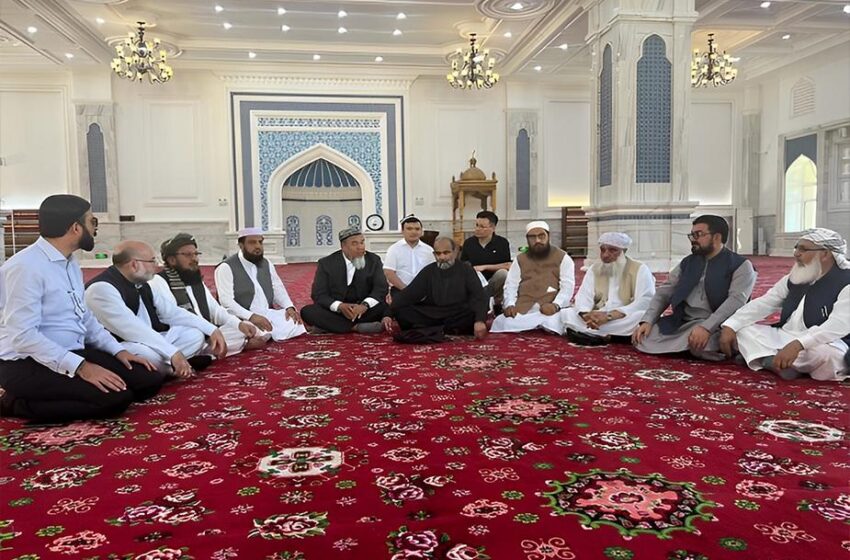Pakistani religious leaders nurture bonds of friendship, cooperation with China’s Xinjiang province

XINJIANG (July 19): A Pakistani delegation consisting of religious leaders and scholars recently held a successful visit to China’s Xinjiang province, fostering bilateral ties and discussing mutual interests.
During the visit, the Pakistani delegation engaged in constructive meetings with prominent figures, including the Central Leader of the Communist Party of China in Xinjiang, Ma Zengrong, Deputy Secretary of the Xinjiang Governor’s Office, Irkin Tojiz, and the President of the Islamic Association of Xinjiang, Sheikh Alama Abdul Raqib Al-Sini.
The discussions covered a wide range of topics, with both sides expressing a commitment to strengthen the relations between Pakistan and China.
Notably, the Chinese leaders emphasized their dedication to making Xinjiang an exemplary province and pledged to promote cultural and economic ties with Pakistan beyond mere political interests.
They also expressed their intent to launch significant projects, complementing the China-Pakistan Economic Corridor (CPEC), which they believed would contribute to the region’s economic stability and growth.
Council of Islamic Ideology Chairman Dr Qibla Ayaz reaffirmed Pakistan’s unwavering adherence to the one-China policy and expressed strong determination to continue working with China on various projects, including the CPEC.
The Pakistani delegation comprised distinguished figures from various religious and political organizations.
Maulana Fazlur Rehman, Deputy Amir of Jamiat Ulema-e-Islam, praised the efforts in completing the CPEC and establishing exemplary relations with China.
Maulana Tayyab Tahir, Amir of Islami Tehreek Pakistan, highlighted the importance of closely monitoring Chinese investments in the region to ensure the welfare of the local population.
The visit also included an insightful tour of the Islamic Institute in Xinjiang, where the delegation was warmly received by Uighur Muslim leader Allama Sheikh Abdul Raqib Al-Sini.
During this visit, Al-Sini informed the delegation about the educational programmes at the institute, which include Quranic teachings, Islamic culture, and the principles of the Chinese Republic.
He emphasized that Muslims of various ethnic groups, including Uighurs, Kazakhs, Hui, and Mongols, enjoy religious freedom in Xinjiang, which is enshrined in China’s Constitution.
The institute’s commitment to religious education was evident, with nearly 200 students enrolled in the curriculum. The Chinese government generously supported the central campus, constructed in 2017, which also oversees eight nearby religious schools and mosques.
The visit was marked by moments of cultural exchange and appreciation.
Maulana Rashid-ul-Haq Sami, Administrator of Dar-ul-Uloom Haqqania, commended the students’ eloquent renditions of the Quran and extended an invitation for them to visit Dar-ul-Uloom Haqqania in Pakistan.
Dr Qibla Ayaz expressed gratitude to the Islamic Association of Xinjiang for their hospitality and cordial reception during the visit.
The delegation, along with Chinese scholars and leaders, expressed their commitment to promoting cooperation and solidarity between Pakistan and China, fostering sustainable development and prosperity in the region.
This visit served as a testament to the deepening friendship and understanding between the two nations, laying the groundwork for a prosperous future marked by strengthened cooperation and mutual respect.


